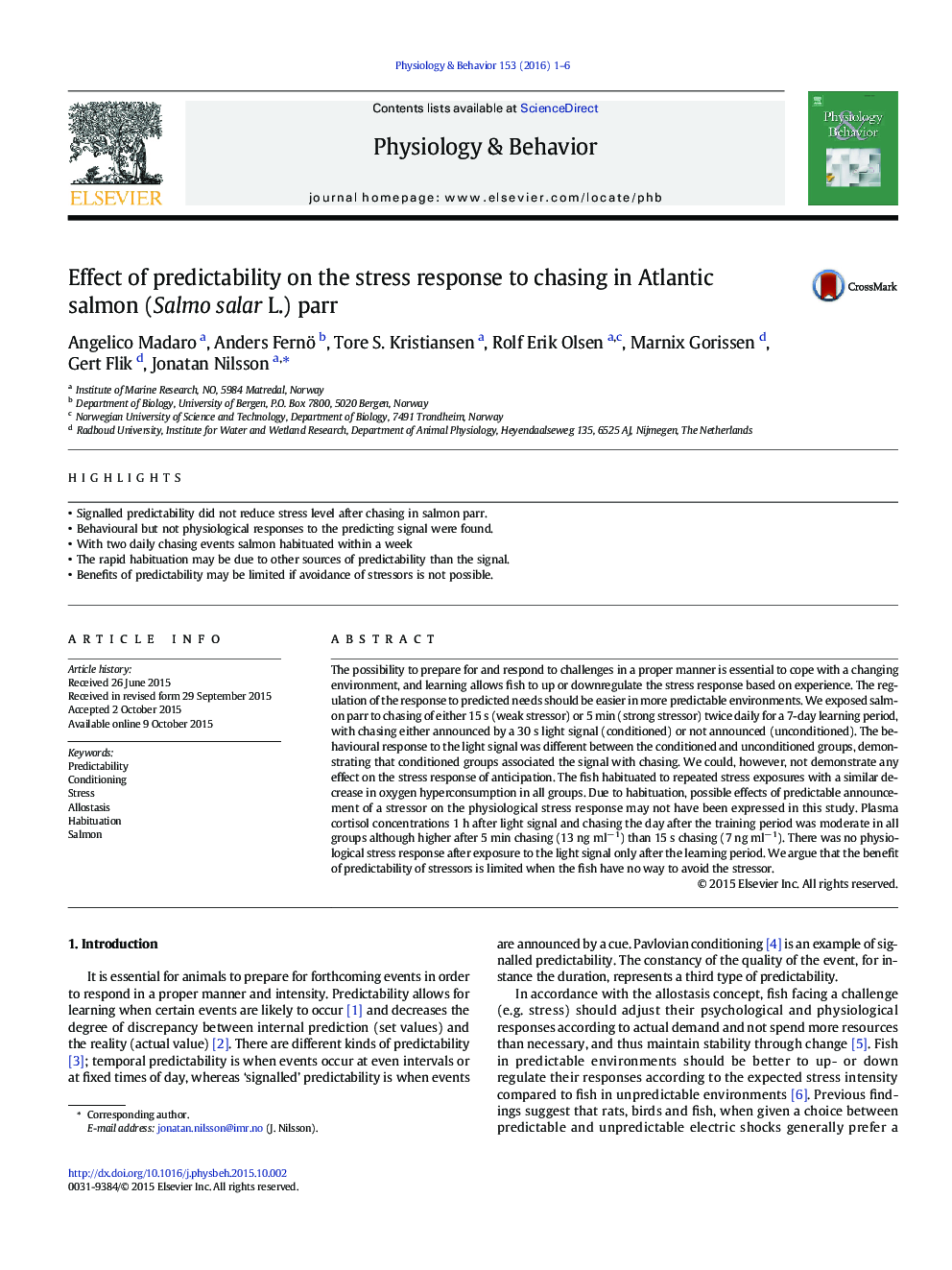| کد مقاله | کد نشریه | سال انتشار | مقاله انگلیسی | نسخه تمام متن |
|---|---|---|---|---|
| 2843940 | 1571165 | 2016 | 6 صفحه PDF | دانلود رایگان |
• Signalled predictability did not reduce stress level after chasing in salmon parr.
• Behavioural but not physiological responses to the predicting signal were found.
• With two daily chasing events salmon habituated within a week
• The rapid habituation may be due to other sources of predictability than the signal.
• Benefits of predictability may be limited if avoidance of stressors is not possible.
The possibility to prepare for and respond to challenges in a proper manner is essential to cope with a changing environment, and learning allows fish to up or downregulate the stress response based on experience. The regulation of the response to predicted needs should be easier in more predictable environments. We exposed salmon parr to chasing of either 15 s (weak stressor) or 5 min (strong stressor) twice daily for a 7-day learning period, with chasing either announced by a 30 s light signal (conditioned) or not announced (unconditioned). The behavioural response to the light signal was different between the conditioned and unconditioned groups, demonstrating that conditioned groups associated the signal with chasing. We could, however, not demonstrate any effect on the stress response of anticipation. The fish habituated to repeated stress exposures with a similar decrease in oxygen hyperconsumption in all groups. Due to habituation, possible effects of predictable announcement of a stressor on the physiological stress response may not have been expressed in this study. Plasma cortisol concentrations 1 h after light signal and chasing the day after the training period was moderate in all groups although higher after 5 min chasing (13 ng ml− 1) than 15 s chasing (7 ng ml− 1). There was no physiological stress response after exposure to the light signal only after the learning period. We argue that the benefit of predictability of stressors is limited when the fish have no way to avoid the stressor.
Journal: Physiology & Behavior - Volume 153, 1 January 2016, Pages 1–6
